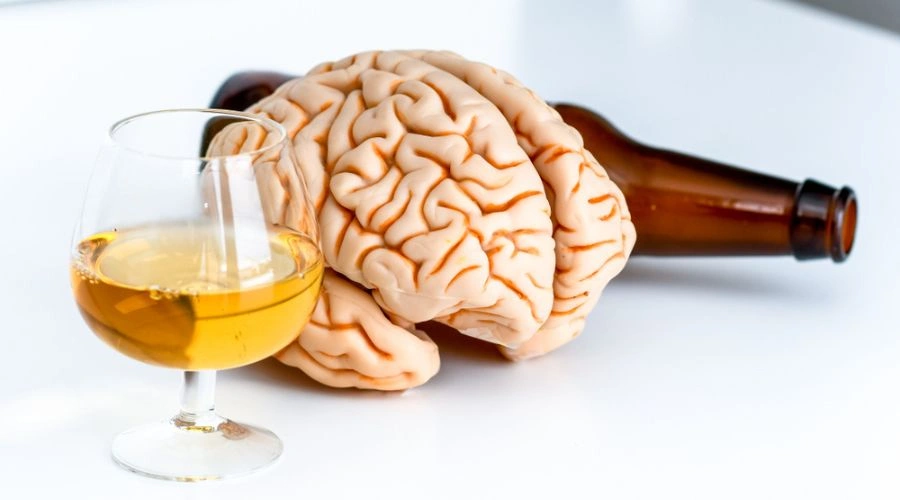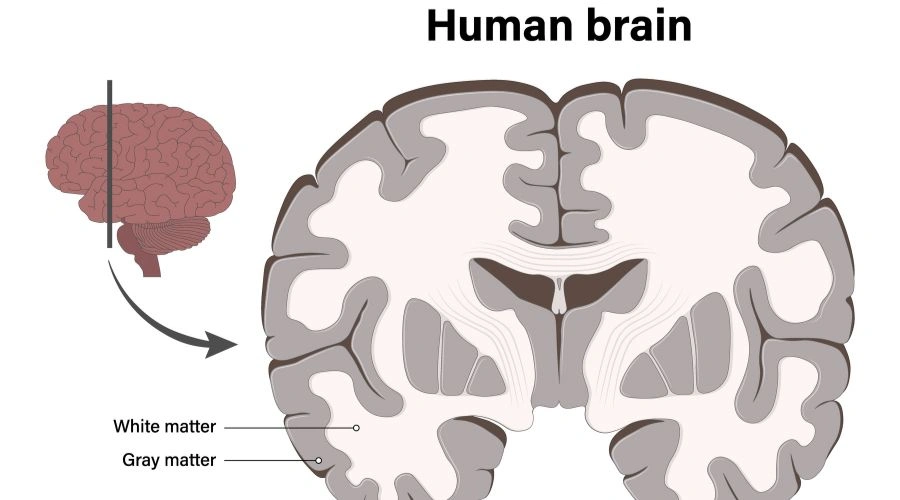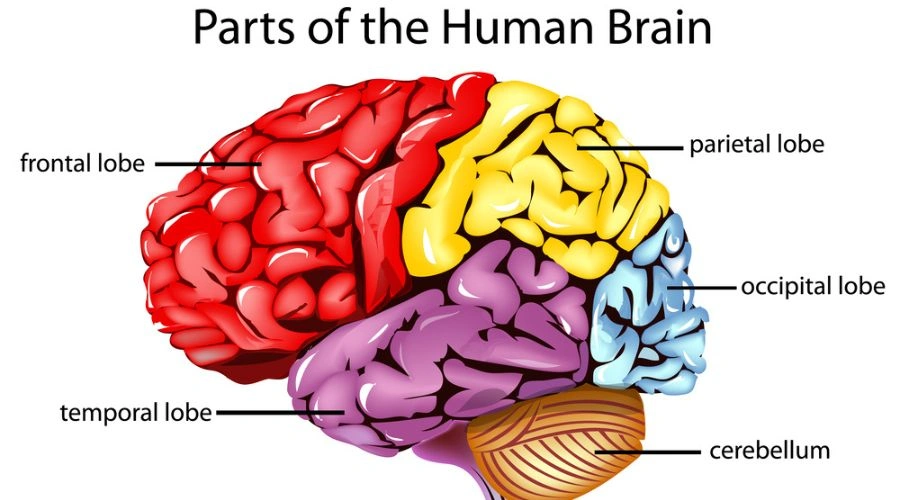How Long Does it Take for the Brain to Recover From Alcohol Abuse?
Legal? Yes. But the reality is that easy access and social acceptance of alcohol have left many people struggling with drinking habits. As many as 50% of men and 25% of women struggle with alcohol use disorder. Fortunately, this means that there is support when you’re ready to regain control.
Even a week or two after getting sober, recovery might feel like an emotional rollercoaster. Your mood is all over the place, it’s hard to focus, and you feel fatigued. No matter what you try, it feels impossible to escape the heavy, dense fog that has settled around you.
This can leave you wondering, “What is the brain recovery from alcohol timeline?” Will I go on feeling like this forever?
The good news is that this won’t last forever. Significant changes happen around 1 month and you won’t even recognize yourself (in a good way!) a year after sobriety.
Stay encouraged about the brain recovery timeline by knowing what to expect, and let South Shores Detox support you through this recovery journey.
How Alcohol Affects the Brain

You won’t experience permanent cognitive deficits after one night of heavy drinking. With alcohol use disorder, however, your brain doesn’t have time to heal after consuming alcohol.
As a result, you experience shrinkage in areas that control learning, memory, decision-making, emotional control, and motor coordination. On a neurochemical level, important hormone levels that control things like mood are disrupted.
Just as it takes time for this damage to occur, brain recovery takes time. But it is very possible when you have proper support.
The Truth About Brain Cells, Brain Damage, and Cognitive Deficits from Alcohol Addiction
Many people wonder if brain cells die from alcohol abuse. They can. Brain cell death is most common following repeated, heaving drinking – the kind associated with alcohol use disorder. While brain cells might not be recovered, your brain’s structure can heal.
Chronic drinking causes shrinkage, or atrophy, in parts of your brain. While alcohol-related brain damage is not reversible, shrinkage is. You can recover the related cognitive deficits with abstinence and time.
The Alcohol Recovery Timeline
Cognitive changes and mental fog might make it hard to commit to the recovery process. Just know that these feelings won’t last forever. Your brain will need time to heal. Damage doesn’t happen overnight, and neither does recovery, but the time that you put into the journey will be well worth it.
The Withdrawal Phase: 24-72 Hours
Approximately 1-3 days after your last drink, the most intense physical withdrawal symptoms start. You may experience sweating, tremors, increased heart rate and blood pressure, and upset stomach. Some people also have seizures, which is one of the reasons medical detox is recommended for severe alcohol withdrawal.
Common mental symptoms include anxiety, insomnia, and mental fog. You may also experience confusion, delirium, or hallucinations.
Week 1: The End of Early Withdrawal
Physical withdrawal symptoms taper off between 3-7 days, significantly declining by the time you reach 7-10 days of sobriety. You’ll likely be able to get some quality rest finally and things won’t be quite as foggy.
Even so, symptoms like anxiety and irritability might linger. Depression and strong cravings are also common.
Week 2: Reduced Symptoms and Energy Shifts
Research shows that long-term alcohol use causes gray matter to shrink. Gray matter is the system of cell bodies, neurons, synapses, and other components found throughout the brain and spinal cord. It affects communication through the body, including coordinating movements, processing information, and storing memories.
As early as two weeks after getting sober, there’s a noticeable increase in gray matter. You’ll notice better coordination, improved mood, and less mental fog.
Cognitive Changes After 1 Month Sober
Following chronic alcohol abuse, one month of sobriety brings more mental stability. You may still feel a little “off” compared to who you were before alcohol-related damage, but you won’t feel as irritable. Managing your mood is easier and you’ll notice improved sleep habits.
Research shows impressive increases in brain matter after just 30 days of sobriety. Daily tasks start getting easier and struggles of impaired cognitive function start to improve. Your executive functioning, or the area of the brain that controls impulse control, planning, and decision-making, also shows significant improvements.
The Fog Lifting After 3 Months of Sobriety
Three months after you stop drinking, you’ll notice significant cognitive improvements and a shift in your attitudes toward recovery. Balanced dopamine levels play a major role at three months of sobriety. As your levels of dopamine regulate, things don’t seem as bleak. Your brain starts to experience pleasure from doing activities you enjoy, like self-care, being with family, or spending time outdoors.
Many people also feel stronger in their ability to manage cravings three months after quitting alcohol. You’ll also be able to handle stress better, notice better memory and cognition, and find it easier to make decisions that support your sobriety.
Mental Milestones After Six Months of Sobriety
Six months marks major recovery milestones for your brain once you stop drinking. Your brain structure heals at six months, with magnetic resonance imaging (MRI) scans of the addict’s brain showing significantly improved levels of grey and white matter. It’s significantly easier to regulate emotions and handle stress.
These structural changes also lead to improved learning capacity and memory, increased focus, and better problem-solving skills. Many people in alcohol recovery start thinking about their future at this point. You start to plan for your next steps and set long-term goals with a brighter future ahead of you.
Your Brain’s Recovery from Alcohol Abuse After One Year Sober
You’ll notice the most significant changes to brain function one year after quitting alcohol. Many cognitive functions return to pre-alcohol addiction levels.
Unless you have an underlying mental health condition, alcohol and depressive symptoms are almost gone. You’ll regularly get a full night of sleep and wake feeling energized and refreshed. It’s common to feel hopeful about the future again, regardless of how alcohol dependence affected your life in the past.
Even though changes can continue, there is a risk that some cognitive functions don’t improve. This varies from person to person. However, many people find comfort in knowing that if you do have deficits, your brain is likely to strengthen in other areas. Most people do not experience any permanent limitations after recovery, even after chronic, excessive alcohol consumption.
How Does Neuroplasticity Impact Brain Recovery?
Neuroplasticity is about your brain’s incredible ability to heal connections, no matter how long it has been. During active addiction, excessive drinking halts neuroplasticity. Key pathways weaken, so your brain can’t carry out tasks as easily as it once could. You might notice these subtle changes in the way that you think or remember things.
After you stop drinking, your brain starts to restore balance again. It can repair damaged neurons and rebuild areas of the brain affected by drinking. Your neurons start communicating better, too.
You won’t notice changes overnight. Through time and with continued sobriety, cognition can be significantly improved. Some things reverse altogether. While the greatest changes happen after one year of sobriety, your brain’s neuroplasticity continues to work behind the scenes and produce positive changes.
What Parts of the Brain Recover Following Alcohol Abuse?
The brain damage caused by excessive alcohol use is not limited to any single area of the brain. There are widespread changes. As your brain heals after you stop drinking, brain regions that may heal include:
- Frontal Lobe – This region affects the brain’s ability to focus, reason, and control certain behaviors.
- Prefrontal Cortex – This area is responsible for cognitive functions like impulse control and decision-making.
- Cerebellum – The cerebellum affects fine motor skills and coordination.
- Hippocampus – The hippocampus plays a critical role in learning new things and forming memories.
- Amygdala – This area of the brain helps process emotions, especially anxiety and fear.
As these areas of the brain heal, so will you. Certain changes will become apparent in how you think, feel, and respond to what is going on around you. You’ll feel confident in your ability to take back the sense of control that you may have lost while struggling with alcohol use disorder.
How to Support Your Brain’s Recovery from Alcohol Use Disorder
Like seeking alcohol treatment supports you through the recovery process, you can also support your brain’s natural plasticity and cortical thickness recovery. Eating well, exercising, sleeping, and going to therapy speed up the process.
Remember that your brain is not broken, it’s rebuilding. Through time, sustained abstinence, and the right support, you’ll notice significant improvements in brain health. The good thing about brain health and drinking alcohol is that as long as you are abstaining, the changes are linear. You’ll only heal more the longer you stay focused on your goals.
Healthy Habits That Support the Brain
Habits that support your physical body support your brain as well. Start with 7-9 hours of sleep per night, proven to help your brain repair itself. Being physically active also promotes blood flow to the brain. This stimulates neurogenesis and encourages the brain to recover.
Nutrients found in leafy greens, berries, nuts, eggs, and fatty fish all support brain health. Eat well and choose nutrient-dense foods. Drink enough water. This supports the brain and helps you feel better, as dehydration is known to cause brain fog.
The Role of Therapy in Long-Term Sobriety
Your mindset and mental wellness play a critical role in recovery for the alcoholic brain. It is a useful tool for uncovering unhealthy thinking patterns and processing lingering emotions that might inhibit recovery. As you learn and adopt new ways of thinking, you are forming new neural connections that support neuroplasticity.
At South Shores Detox, we customize your therapy options (and the whole treatment process) to reflect your individual needs. With a clear, personalized approach to recovery, overcoming cognitive impairments caused by alcohol use disorder is much easier.
Learning New Skills
Learning coping strategies, practicing skills, and being socially engaged also support neuroplasticity during alcohol recovery. They stimulate the brain, encouraging new connections that support brain recovery.
Mindfulness and meditation are also useful tools. These are proven to improve focus, support mental clarity, and relieve stress, all things that are important as you take steps into your alcohol-free life.
Considering Medications and Supplements
Vitamins and other supplements can also improve brain health. B vitamins are essential for repair in different brain areas. Vitamin B1 is especially important, as this is usually deficient in chronic alcohol abusers.
Taking an Omega-3 fatty acid supplement can reduce inflammation in the brain that inhibits healing. It also supports brain function. The amino acid N-acetylcysteine (NAC) is also beneficial, as it supports dopamine regulation and reduces cravings associated with recovery from alcohol addiction.
Last, some people benefit from medication-assisted treatment. Prescription medications, including naltrexone or acamprosate, might be recommended to stabilize mood and reduce cravings to drink.
Call South Shores and Help Your Brain Heal Today
The decision to get sober from chronic alcohol use often comes after you have concerns about impaired cognitive functioning, but your brain will heal, and you can, too!
Call South Shores Detox for more information about our treatment programs and how we can support your brain’s recovery today. The holistic approach we use across all of our programs can aid in the significant recovery of brain cells and neural pathways. We support your mind, body, and spirit for a better chance of lasting recovery!





